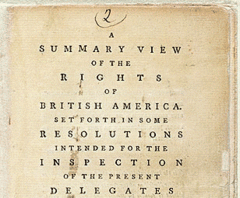| « Election Day with a Long-shot | African American Leaders Choose Davis For Mayor » |
Media Fri Nov 05 2010
The Inanity of the Objective Press
 A year and more ago, now former Progress Illinois editor in chief Josh Kalven and I, over drinks at the Chipp Inn in Noble Square, lamented the state of political journalism. Reiterating something he'd said at a panel discussion at the Hideout, he told me that he wasn't certain why there was so much discussion about the legitimacy of bloggers as journalists in the context of their "biases." Everybody has predispositions and opinions, he said, at least readers know from what point of view so-called "partisan" media comes from. Traditional journalists aren't free of those predispositions, they are just instructed to hide them.
A year and more ago, now former Progress Illinois editor in chief Josh Kalven and I, over drinks at the Chipp Inn in Noble Square, lamented the state of political journalism. Reiterating something he'd said at a panel discussion at the Hideout, he told me that he wasn't certain why there was so much discussion about the legitimacy of bloggers as journalists in the context of their "biases." Everybody has predispositions and opinions, he said, at least readers know from what point of view so-called "partisan" media comes from. Traditional journalists aren't free of those predispositions, they are just instructed to hide them.
This was on everybody's mind in particular after an experiment by Slate wherein they disclosed for whom all their writers voted. This was supposedly a painful thing for a news outlet to do, because it would "discredit" what their writers were saying.
Just this week, MSNBC suspended host Keith Olbermann when Politico reported that he had donated money to candidates he had interviewed on his show "Countdown." Presumably, this represented some nebulous conflict-of-interest, wherein Olbermann was concealing the fact that he actively supports Democrats for public office from his audience. This reminds me of when Muhammad Saeed al-Sahhaf was suspended for failing to disclose he'd donated lemon bars to the Republican Guard Alumni Booster Club.
Take the long view. The "objective press" is a creation of the Nixon era. It is not a hallowed institution. And attacking the press for a lack of objectivity is a Nixonian tactic. It allows political figures to attack writers and news organizations ad hominem rather than address their arguments--something we've dealt with repeatedly here at GB, too.
When I sat on a panel on journalism--entitled "Is Truth the Front Page News"--at the Remy Bumppo theater in October, I tried to remind people of this fact. When the freedom of the press was enshrined in the Constitution, it wasn't to protect objective fact finders, but to shield the partisan press which, at the time, was all of the press. And the press that was most vulnerable to suppression wasn't, again, the non-existent "objective" press, but the partisan press. The targets of the Sedition Act of the John Adams administration were his political enemies publishing diatribes against his administration. It is not incumbent on writers to be objective; it is incumbent on readers to be discerning. This is done through skepticism to argument, not trying to look into the writer's soul. The publishing of known falsehoods is a civil wrong, known as defamation or libel, and the victim has a remedy at law. Everything outside of what falls under this tort is up for debate, and the ad hominem of questioning the writer's righteousness is a logical fallacy.
 The press cherished by the Founding Fathers was the boisterous adversarial press that jeered the King's imperial administration and incited citizens to rebellion, not Poor Richard's Almanack. Do you suppose, for example, that the administration of King George III viewed the author of A Summary View of the Rights of British America an objective fact finder? Nevertheless, his arguments were devastating and confounded the legal, rightful governments of the colonies.
The press cherished by the Founding Fathers was the boisterous adversarial press that jeered the King's imperial administration and incited citizens to rebellion, not Poor Richard's Almanack. Do you suppose, for example, that the administration of King George III viewed the author of A Summary View of the Rights of British America an objective fact finder? Nevertheless, his arguments were devastating and confounded the legal, rightful governments of the colonies.
When the panel got the question, "Is truth the front page news?" I had a ready answer: yes and no. The front page of USA Today has a story about Apple's quarterly earnings, about their market capitalization and the amazing success story of a business that, only a decade ago, was fading fast. This is all truth. Just as true, however, is that workers in Apple's plants are being killed by our consumption, murdered by brutal working conditions. Which story do we choose to tell? Which do we put on the front page? And why? We'll never reach objectivity. And that cynical political operator who undermine any dissent by attacking the messenger rather than the argument wants nothing more than to keep holding writers to an impossible and nebulous standard of objectivity.
There's something else. Even 70 years ago, a good portion of the population was illiterate, and a significant majority was functionally illiterate, unable to read beyond basic levels. The illusion of some halcyon past when people were reading the great muckrackers ignores the fact that only the educated were reading such stuff. Today, literacy is near 100 percent, and at the same time, the institutions providing "content" have consolidated, so fewer gatekeepers are speaking to more and more people.
I am not a fan of MSNBC or Keith Olbermann. I find him tiresome and the idea of a media institution loyal to a political party (as opposed to an ideology) silly (particularly when that media institution is a part of a massive war contractor conglomerate). But this phony firestorm over his political activities is beyond inanity. Especially at a time when conservatives are crowing about the righteousness of the Citizens United decision that built on the idea that "cash is speech" and that spending money on politics is the cornerstone of free speech, seeing them mewl and puke about Olbermann's supposed conflict of interest is frustrating.
Journalists as professionals have a duty to get at the truth--something that needs to be done through skepticism of power. But let's admit, as much as it may hurt, that there is very little truth outside of science. When journalists and writers try to get to truth, it is by trying to understand what is happening, by advocating for their understanding, and presenting what evidence and argumentation best supports it. Readers are not "consumers" but citizens, who have a duty to read critically and determine what to accept and what not to accept. News and information are not commodities to be consumed, no matter how much today's neoliberal corporatists wish they were. They are arguments to be understood, debated, and resolved.












David Jordan / November 7, 2010 2:50 PM
Yes, journalistic objectivity is a worthy but not entirely reachable goal. As you suggest, only science deals in absolute truth. The laws of time and space dictate that the writer can only truthfully report what he knows then and there.